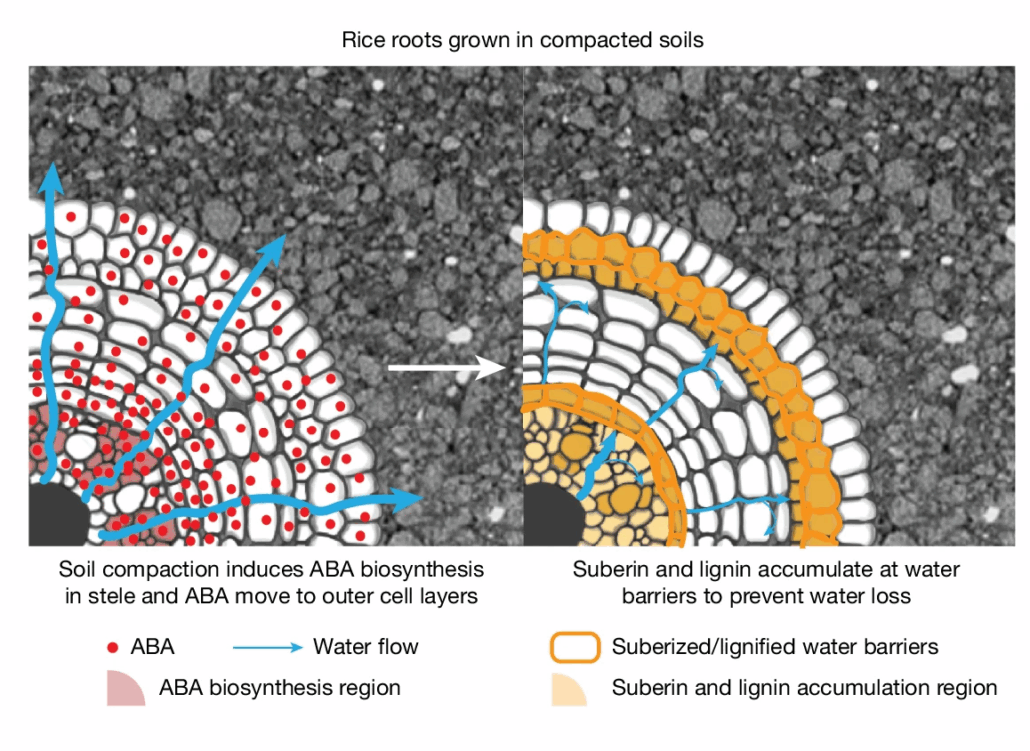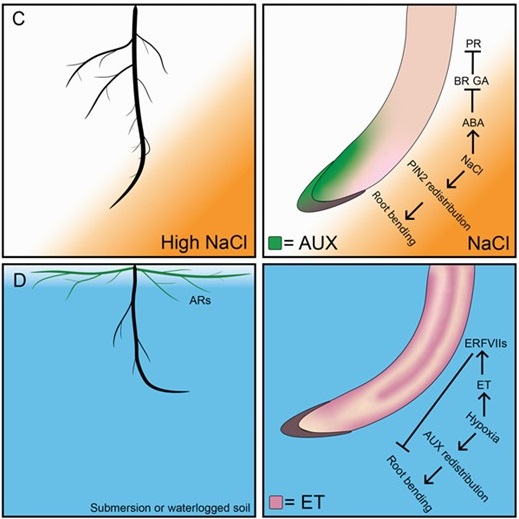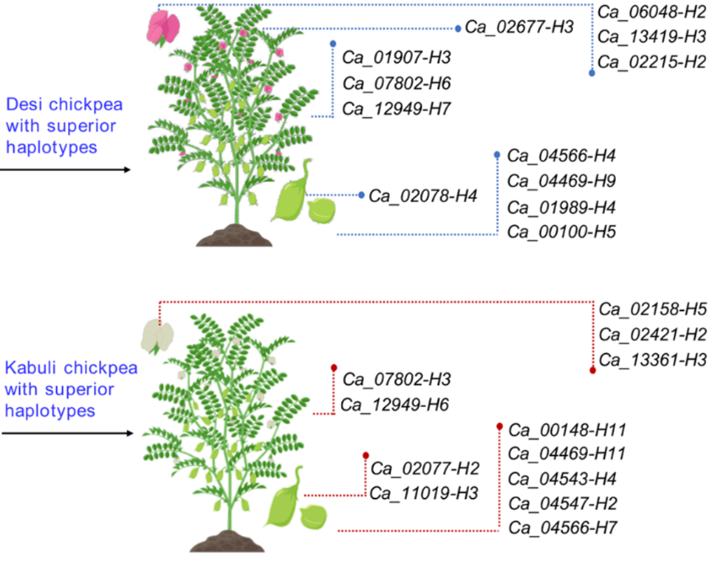
Untangling cell-specific root responses to stress
Plant Science Research Weekly, UncategorizedSingle-cell technologies have brought our understanding of complex tissues to whole new levels. Previous methods showed how gene expression in tissues changes over time or after challenges, whereas now these patterns can be assigned to specific cell types, revealing intricate, elegant processes. Here,…

A novel metabolite confers salt tolerance to Arabidopsis from Cape Verde Islands
Plant Science Research WeeklyRising sea levels and increasing salt accumulation in irrigated soils are threatening food production globally. There is a lot to be learned from plants that have evolved tolerance to salt. In this new preprint, Martínez-Rivas et al. explored the mechanism of salt tolerance the Cvi-0 accession of Arabidopsis…

Genomic regions of durum wheat involved in water productivity
Plant Science Research WeeklyDrought stress is a major problem and can cause large reductions in yield. Water productivity is the amount of yield per unit of water used, hence a higher water productivity is associated with more drought tolerance. Here, Zaïm et al. discovered three genomic loci associated with increased water productivity…

Extensive genome study to boost yield and improve agronomic traits in chickpea (Nature)
Plant Science Research WeeklyIn recent years, there has been increasing awareness about the environmental impact of animal-based protein sources. Legumes such as chickpea (Cicer arientinum) are relatively cheap and sustainable sources of proteins, dietary fibres and micronutrients. Although there is a vast chickpea germplasm collection,…

Review: Root plasticity under abiotic stress (Plant Physiol.)
Plant Science Research WeeklyFor millennia, humans have selected desirable traits in the above-ground part of plants, but below-ground traits have been only indirectly selected for. Thus, roots are ripe for optimization, and hold particular promise in efforts to make crops more resilient and efficient. This Update, by Karlova et…

